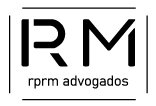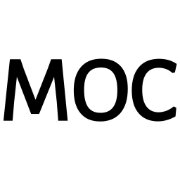Best Creditor Lawyers in Porto
Share your needs with us, get contacted by law firms.
Free. Takes 2 min.
List of the best lawyers in Porto, Portugal
About Creditor Law in Porto, Portugal
Creditor law in Porto, Portugal encompasses all legal regulations and judicial processes designed to protect the rights of individuals or organizations to recover debts owed to them. Whether you are a business or a private individual, the law provides mechanisms for pursuing the repayment of loans, enforcing contracts, negotiating settlements, and, if necessary, litigating disputes over unpaid debts. Porto, as one of Portugal's major economic centers, experiences a variety of creditor-related legal matters ranging from personal loans to commercial credit agreements.
Why You May Need a Lawyer
Hiring a lawyer who specializes in creditor law can be crucial in several circumstances. Some of the most common situations include:
- Recovering unpaid debts from individuals or businesses
- Navigating complex contractual agreements involving credit
- Dealing with insolvency or bankruptcy proceedings
- Enforcing judgments for the collection of debt
- Defending against wrongful or unlawful debt collection claims
- Negotiating payment plans or settlements with debtors
- Understanding your legal rights as a creditor
- Managing cross-border debt collection when foreign elements are involved
An experienced lawyer can provide advice on the best legal strategy, represent you in court if needed, and help ensure compliance with all applicable laws.
Local Laws Overview
Creditor law in Porto is governed by Portuguese national legislation, but local courts and practices may influence procedures and outcomes. Key aspects include:
- Civil Code: The Portuguese Civil Code outlines general rules for contractual relationships and debt enforcement. It stipulates how obligations are created, performed, and enforced.
- Insolvency and Corporate Recovery Code (CIRE): Handles the procedures regarding insolvency, liquidation, and recovery, both for individuals and companies.
- Procedures for Debt Collection: Creditors can initiate legal action through the courts, typically starting with a payment order (Injunção) for undisputed claims or a declaratory process for disputed debts.
- Interest Rates and Late Payment: The law regulates the maximum interest rates and fees that can be charged on overdue debts.
- Consumer Protections: There are specific rules protecting consumers against aggressive or unfair collection practices.
Porto’s courts handle creditor-debtor cases in line with these national provisions, but local legal culture and court efficiency may impact proceedings.
Frequently Asked Questions
What should I do if someone owes me money in Porto?
Firstly, try to resolve the matter amicably and document your attempts to collect the debt. If this fails, consult a lawyer to explore formal collection procedures or legal action.
Is it necessary to hire a lawyer to recover a debt?
While not mandatory, having a lawyer greatly increases your chances of successfully recovering a debt, especially if the amount is significant or the debtor disputes the claim.
How long does the debt recovery process take?
The duration depends on factors such as the complexity of the case, whether the debt is disputed, and the workload of local courts. Simple cases may take a few months, while contested cases can last longer.
Can I charge interest on overdue payments?
Yes, Portuguese law allows for the charging of statutory or contractually agreed interest on overdue debts, as long as it does not exceed legal limits.
What legal procedures are available if a debtor does not pay?
You may initiate a payment order (Injunção), file a lawsuit in civil court, or pursue enforcement proceedings to recover property or funds.
Are there specific protections for consumers?
Yes, consumers enjoy protections against abusive or unfair debt collection practices. A lawyer can help ensure that all recovery actions comply with these regulations.
What if the debtor declares bankruptcy?
If the debtor enters insolvency, you may need to register your claim as a creditor in the bankruptcy proceedings. Distribution of assets to creditors will follow legal priorities.
Can I attempt to seize the debtor’s assets?
After obtaining a court judgment in your favor, enforcement proceedings can be initiated to seize or sell the debtor’s assets to satisfy the debt.
How does cross-border debt collection work?
If the debtor is located abroad, EU regulations and treaties facilitate recognition and enforcement of judgments, but procedures can be complex. Specialized legal assistance is recommended.
Is there a statute of limitations on debt collection?
Yes, debt claims are subject to limitation periods, often ranging from 2 to 20 years depending on the type of debt. It is important to act within these timeframes.
Additional Resources
Individuals and businesses seeking legal advice about creditor matters in Porto may benefit from the following organizations and resources:
- The Portuguese Bar Association (Ordem dos Advogados) - for finding qualified lawyers specializing in creditor law
- Centro de Arbitragem do Porto - for alternative dispute resolution services
- Instituto dos Registos e do Notariado (IRN) - for public records and business registration information
- Portal da Justiça - for official forms, online services, and information about legal processes
- DECO - the Portuguese Association for Consumer Protection, which offers advice on consumer credit issues
- Local courts in Porto - for information regarding specific procedures and case filing
Next Steps
If you require legal assistance as a creditor in Porto, follow these steps:
- Gather all relevant documents, such as contracts, invoices, payment records, and communications with the debtor.
- Seek a consultation with a lawyer experienced in creditor law to assess your case and outline possible actions.
- Attempt to negotiate an amicable agreement, if appropriate, to resolve the debt without court intervention.
- If negotiation fails, proceed with formal legal action or alternative dispute resolution as advised by your lawyer.
- Monitor all communications and deadlines to ensure timely action under the applicable statutes of limitation.
Taking prompt action and seeking professional legal guidance are essential to effectively protect your rights as a creditor in Porto, Portugal.
Lawzana helps you find the best lawyers and law firms in Porto through a curated and pre-screened list of qualified legal professionals. Our platform offers rankings and detailed profiles of attorneys and law firms, allowing you to compare based on practice areas, including Creditor, experience, and client feedback.
Each profile includes a description of the firm's areas of practice, client reviews, team members and partners, year of establishment, spoken languages, office locations, contact information, social media presence, and any published articles or resources. Most firms on our platform speak English and are experienced in both local and international legal matters.
Get a quote from top-rated law firms in Porto, Portugal — quickly, securely, and without unnecessary hassle.
Disclaimer:
The information provided on this page is for general informational purposes only and does not constitute legal advice. While we strive to ensure the accuracy and relevance of the content, legal information may change over time, and interpretations of the law can vary. You should always consult with a qualified legal professional for advice specific to your situation.
We disclaim all liability for actions taken or not taken based on the content of this page. If you believe any information is incorrect or outdated, please contact us, and we will review and update it where appropriate.













